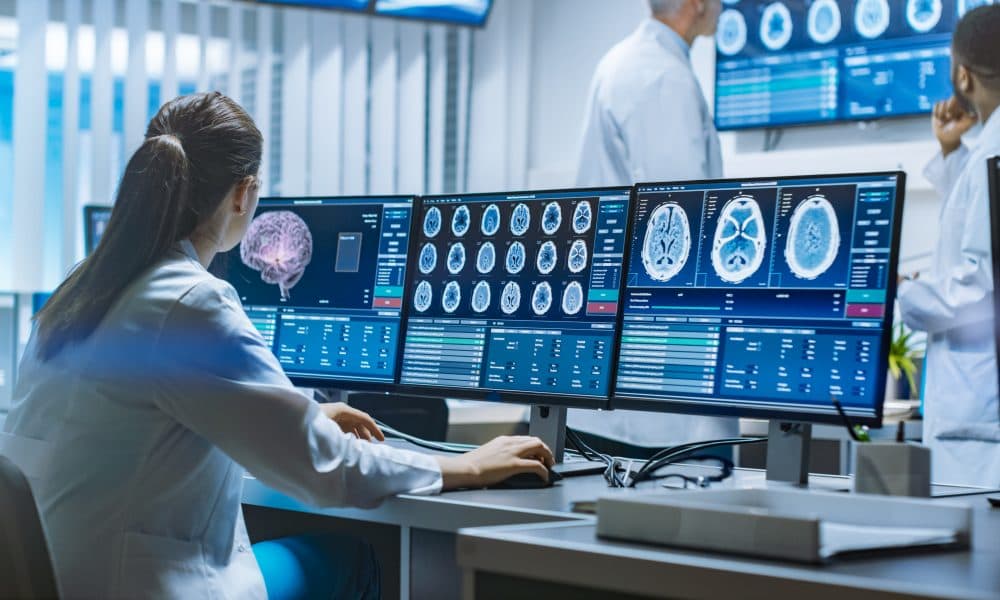
Falsified mammogram images can fool Artificial Intelligence (AI) breast cancer diagnosis models and human experts.
AI models that evaluate medical images have the potential to speed up and improve the accuracy of cancer diagnoses, but they may also be vulnerable to cyberattacks, a study by the University of Pittsburgh has revealed.
The researchers simulated an attack that falsified mammogram images, fooling both an AI breast cancer diagnosis model and human breast imaging radiologist experts.
Senior author Shandong Wu, PhD, associate professor of radiology at Pitt said the study highlighted a potential safety issue for medical AI known as ‘adversarial attacks,’ which seek to alter images or other inputs to make models arrive at incorrect conclusions.
“What we want to show with this study is that this type of attack is possible, and it could lead AI models to make the wrong diagnosis, which is a big patient safety issue.
“By understanding how AI models behave under adversarial attacks in medical contexts, we can start thinking about ways to make these models safer and more robust.”
AI-based image recognition technology for cancer detection has advanced rapidly in recent years, and several breast cancer models have U.S. Food and Drug Administration (FDA) approval.
Wu said these tools can rapidly screen mammogram images and identify those most likely to be cancerous, helping radiologists be more efficient and accurate.
But such technologies are also at risk from cyber threats, such as adversarial attacks. Potential motivations for such attacks include insurance fraud from health care providers looking to boost revenue or companies trying to adjust clinical trial outcomes in their favor.
Adversarial attacks on medical images range from tiny manipulations that change the AI’s decision, but are imperceptible to the human eye, to more sophisticated versions that target sensitive contents of the image, such as cancerous regions, making them more likely to fool a human.
To understand how AI would behave under this more complex type of adversarial attack, Wu and his team used mammogram images to develop a model for detecting breast cancer.
First, the researchers trained a deep learning algorithm to distinguish cancerous and benign cases with more than 80 per cent accuracy. Next, they developed a so-called ‘generative adversarial network’ (GAN), a computer program that generates false images by inserting or removing cancerous regions from negative or positive images, respectively. They then tested how the model classified these adversarial images.
Of 44 positive images made to look negative by the GAN, 42 were classified as negative by the model, and of 319 negative images made to look positive, 209 were classified as positive. In all, the model was fooled by 69.1 per cent of the fake images.
In the second part of the experiment, the researchers asked five human radiologists to distinguish whether mammogram images were real or fake.
The experts accurately identified the images’ authenticity with an accuracy of between 29 per cent and 71 per cent, depending on the individual.
Wu said the next step will involve developing ways to make AI models more robust to adversarial attacks.
With the prospect of AI being introduced to medical infrastructure, Wu said that cybersecurity education is also important to ensure that hospital technology systems and personnel are aware of potential threats and have technical solutions to protect patient data and block malware.
“Certain fake images that fool AI may be easily spotted by radiologists. However, many of the adversarial images in this study not only fooled the model but also fooled experienced human reader.
“Such attacks could potentially be very harmful to patients if they lead to an incorrect cancer diagnosis.
“One direction that we are exploring is ‘adversarial training’ for the AI model. This involves pre-generating adversarial images and teaching the model that these images are manipulated.
“We hope that this research gets people thinking about medical AI model safety and what we can do to defend against potential attacks, ensuring AI systems function safely to improve patient care.”





